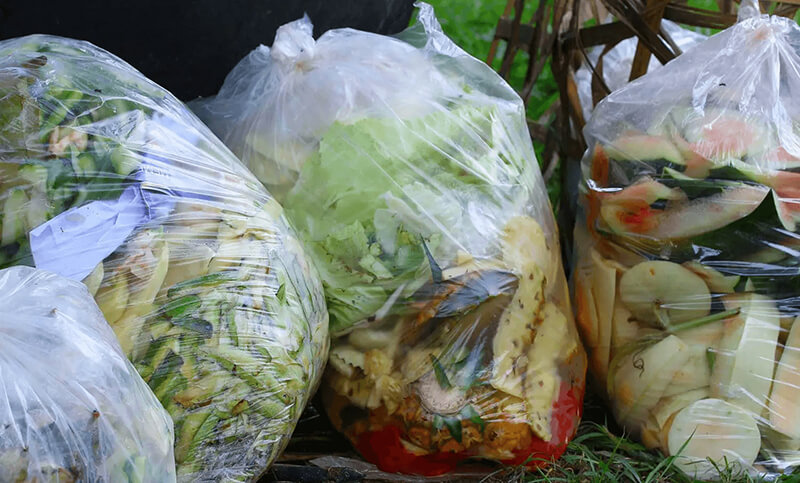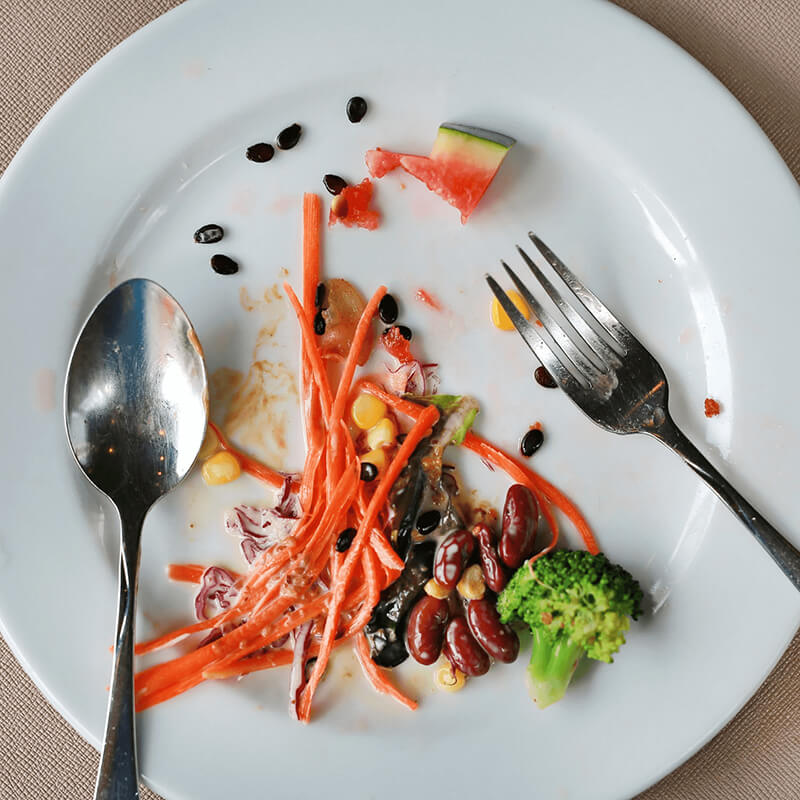Food Waste Prevention in Kelowna, BC

Food Waste Enviromental Impact
Food waste in hotels and restaurants has a significant environmental impact. Every year, tons of foods are wasted in commercial kitchens, leading to increased emissions of greenhouse gases. Not only does this contribute to global warming, but it also puts additional strain on landfills and other disposal methods that generate more methane gas.
Food waste in these establishments also has economic effects, as it reduces profits for businesses and contributes to a rise in the prices of food products in the market. The resources used to produce the food are wasted, resulting in higher costs for hotels and restaurants.
We at BetterTable.ca give food waste solutions, so you become climate-smart and improve profitability in your business.
Kelowna: a sustainable destination
Generating over $2B in economic activity, tourism is an integral part of the Kelowna area’s economy. With diverse activities and attractions, including agritourism, the Central Okanagan remains beautiful and accessible for travellers and residents alike.
Tourism Kelowna is working to plan the future of tourism and improve sustainability performance. Some of the Sustainability Indicators currently tracked include Trees Planted, Bottles Saved with Filling Station, and Power Used Vs. Power Generated by Solar (kWh).
Tourism Kelowna is one of the Biosphere Committed organizations in the Okanagan, taking action for the UN Sustainable Development Goals. Biosphere is a Responsible Tourism System (RTS) certification by the Responsible Tourism Institute (RTI), an international accreditation body affiliated with the World Tourism Organization (WTO), and is a member of the Global Sustainable Tourism Council (GSTC). It is also Sustainable Tourism Gold certified.
Tourism Kelowna took a Stewardship Pledge: “We foster the preservation and continual restoration of the land, resources, and communities of the Central Okanagan. We continue to take action and make commitments to further diversity, equity, inclusion, and accessibility in our work and in the region we support.” A sustainability pledge is also offered for visitors and local residents to learn how to Explore Kelowna Sustainably.


Food Waste Reduction Services
Food Waste Reduction Services are designed to reduce the amount of food waste created by businesses and then managed by a professional hauler.
After conducting a food waste audit, you will get valuable insights that can dramatically lower your food cost. Businesses are required to separate organic waste into several streams to gain valuable insights.
Waste Reduction
Hotels and restaurants generate significant amounts of food waste during the preparation process and from customers who cannot finish their meals. This wasted food affects the bottom line of businesses and hurts our environment. It takes resources to produce this food, and those resources are wasted.
Hotels and restaurants can implement strategies such as portion control, menu planning, efficient storage and preparation methods, and composting programs to reduce food waste. By reducing over-prepared meals, chefs can ensure that customers receive fresh meals without unnecessary leftovers.
Additionally, efficient storage techniques can reduce the spoilage of certain items. Composting programs can help divert some of this wasted food from landfills and instead turn it into useful soil amendments.
Hotels and restaurants can also work with suppliers to find ways to reduce food waste. They can also consider hiring food waste reduction professionals to help them reduce food waste.
Food Waste Technology
Food waste technology is a rapidly developing field of study, with innovative solutions being designed to reduce food waste and increase the efficiency of existing food systems.
From utilizing advanced sensors to track temperatures in cold-storage warehouses to analyzing historical data to identify buying patterns, food waste technology can provide essential insights into how we can better manage our food resources and reduce unnecessary waste.
At BetterTable.ca, we offer Food Intel Tech to enable hotel and restaurant owners to easily track their food waste. The current users of this food waste monitoring technology have testified to reducing their food costs by 3-5% by tracking their food waste.
Food Cost Reduction
Food cost reduction is a critical strategy for reducing food waste in hotels and restaurants. By cutting unnecessary spending on food, restaurants can cut down on their costs while still providing customers with quality meals.
BetterTable.ca can help you become certified against sustainable certifications, including The PLEDGE™ on Food Waste. It helps hotel and restaurant owners reduce their food costs and eventually improve their bottom line.
Additionally, efficient storage techniques can reduce the spoilage of certain items. Composting programs can help divert some of this wasted food from landfills and instead turn it into useful soil amendments.
Hotels and restaurants can also work with suppliers to find ways to reduce food waste. They can also consider hiring food waste reduction professionals to help them reduce food waste.
Frequently Asked Question (FAQs)
Below are frequently asked questions about the reduction of food waste:
How do commercial kitchens reduce food waste?
Commercial kitchens can reduce food waste by following good kitchen management practices. Proper stock control, ordering, and scheduling are key to reducing food wastage in commercial kitchens.
By forecasting demand accurately, chefs can plan their menus accordingly and ensure that only the necessary ingredients are ordered and prepared. Other strategies include using the FIFO (first in, first out) strategy. Other commercial kitchens also advise their customers to carry their leftover food.
How can a restaurant or food service operation reduce the total amount of its waste?
To reduce the amount of food wasted, a restaurant or a hotel must implement a few strategies. Some of these strategies include conducting a food waste audit. An audit determines where most of your food is going to waste.
Many restaurants and hotels usually don’t have proper storage facilities. Therefore, they can consider investing in good storage facilities to reduce food wastage. In addition, they can consider repurposing food that would otherwise go to waste. For instance, they can turn day-old bread into croutons. This activity can add revenue to the business and reduce food wastage in hotels and restaurants.
How can we manage food waste in the hospitality industry?
First, proper training should be provided to all staff involved in handling food items and developing recipes. This will help ensure kitchen staff understand proper portion control and the best way to store food items. This helps reduce waste due to over-preparing food or not using all available ingredients before they spoil.
Those in this industry should use a tracking system to monitor inventory and identify food items that need to be used more quickly. This can help chefs plan meals better and target ingredients and dishes that will be used quickly to reduce waste.
Restaurants should consider composting options for food items that cannot be served. Composting can help reduce the waste generated from kitchen scraps, which can have a positive environmental impact. Restaurants should also look into donating excess food to local shelters or food banks.
Need Food Waste Reduction Services in Kelowna, Canada?
Canadian hotels and restaurants lose $14 billion a year on food waste alone. That tells you how much you may lose as an individual restaurant or hotel. Luckily, food wastage can be reduced by involving food waste reduction experts like BetterTable.ca.
We offer effective and reliable food waste reduction technology that helps hotels and restaurants to curb food wastage. If you want to curb food wastage in your restaurant or hotel and improve your bottom line, contact us at info@BetterTable.ca or call us at +1 604 700 7587.

